Loon Photos
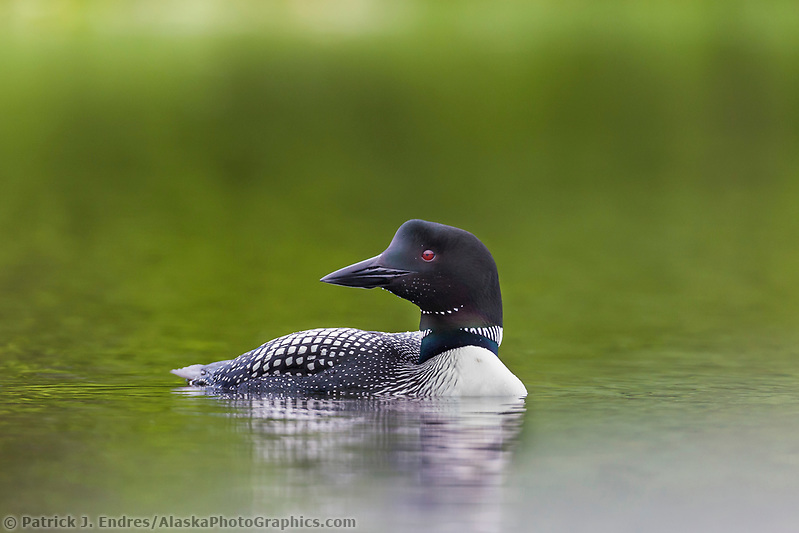
Common Loon, Flat Lake, Alaska. (Patrick J. Endres / AlaskaPhotoGraphics.com)
Alaska is home to all five species of Loons due to the abundant lakes in wilderness areas free from disturbance. In my travels around Alaska, I have photographed four of the five species. All the Loon photos here are available to license as stock photos for commercial use or to purchase as fine art prints for your home and office decor.
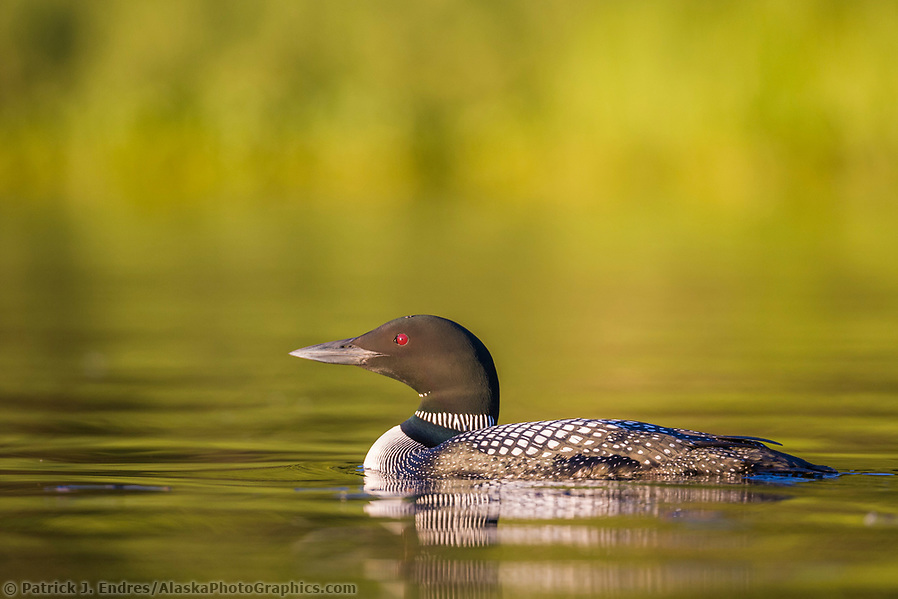
Common Loon in the golden evening light on Flat Lake, Alaska. (Patrick J. Endres / AlaskaPhotoGraphics.com)
The Red-throated, Yellow-billed, and Arctic loon inhabit the state’s coastal areas, and the Common and Pacific loon inhabit a much broader range across coastal and Interior Alaska. They are amazing birds, and all are strikingly beautiful. In some areas, the birds have become habituated to human presence making photography easier. Loons are awkward on land, with legs positioned for optimal swimming. As heavier birds, they are avid divers and catch fish underwater, which is often swallowed before surfacing. Their excellent design for water navigation comes with a small compromise, and they require a large stretch of water to take flight. They can become stranded on lakes that are too small.
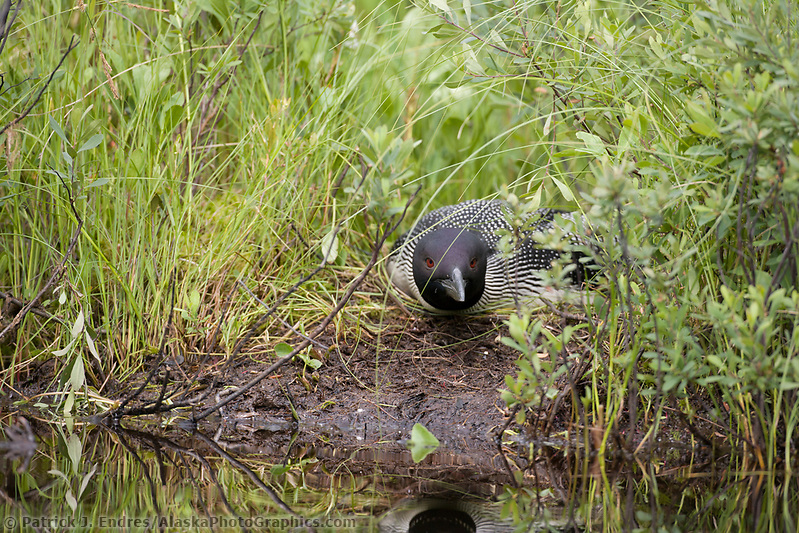
Common Loon, Flat Lake, Alaska. (Patrick J. Endres / AlaskaPhotoGraphics.com)
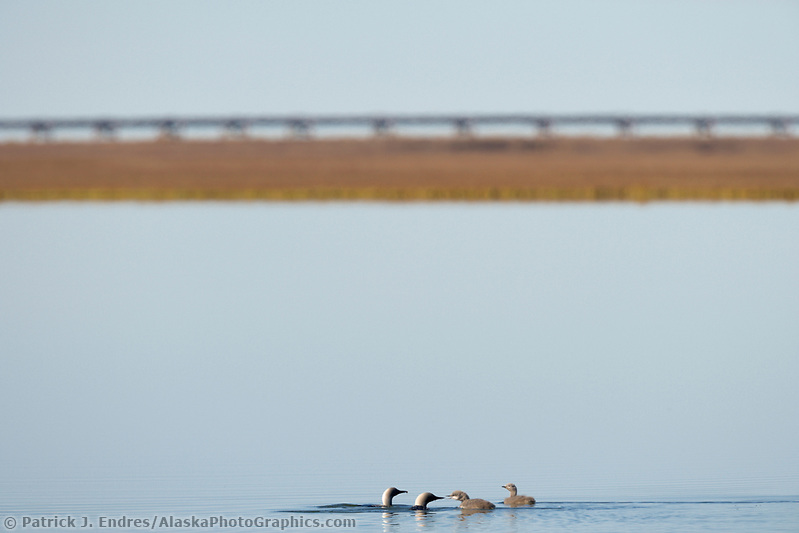
Arctic loon family on a tundra pond in the Arctic, Alaska (Patrick J. Endres / AlaskaPhotoGraphics.com)
Red-throated Loon photos (Gavia stellata)
The Red-throated loon is the most widely distributed but smallest and lightest of the loon family. It breeds primarily in Arctic regions and winters in northern coastal waters. During the breeding season, it exhibits a distinctive reddish throat patch from which it derives its name.
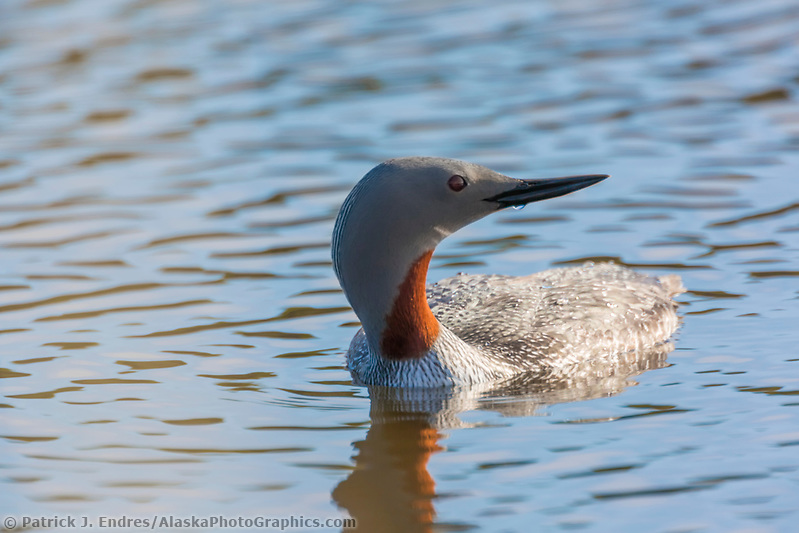
Red-throated loon in a small tundra pond in Denali National Park, Alaska. (Patrick J. Endres / AlaskaPhotoGraphics.com)
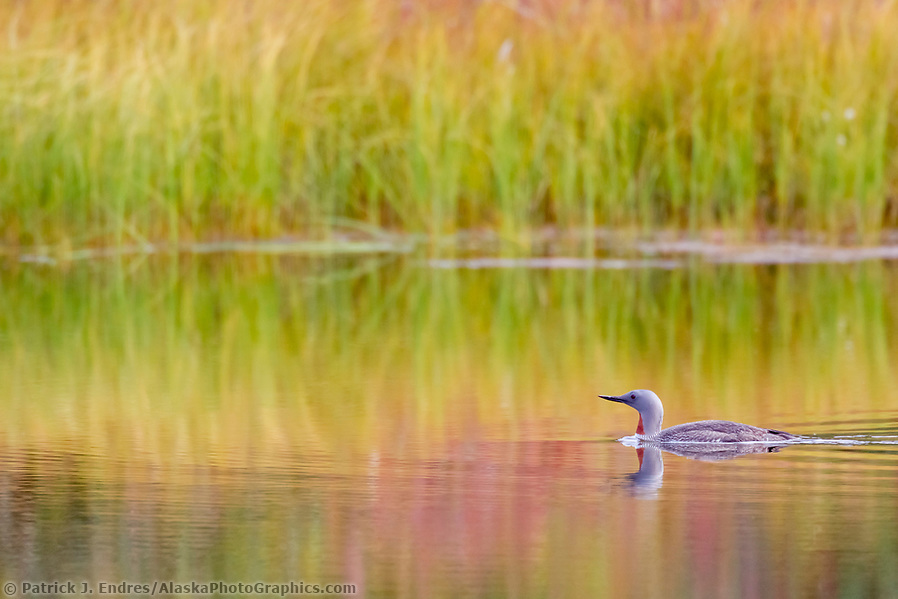
Red-throated loon swims in a tundra pond surrounded by colorful autumn colors reflecting in the water, Denali National Park, Alaska. (Patrick J. Endres / AlaskaPhotoGraphics.com)
Common Loon photos (Gavia immer)
The Common Loon is a large water bird with a long, pointed bill. It sits low on the water. The plumage is similar between the sexes, but the male is larger. The eerie loon sound is a territorial call made by males. Such calls are often heard echoing across a lake or pond. Loons are water birds and only go ashore to mate and nest.
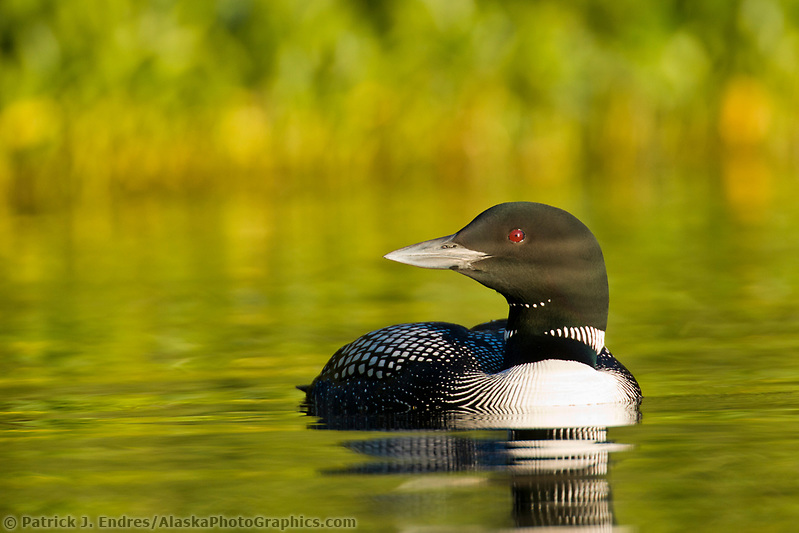
Common Loon in the golden evening light on Flat Lake, Alaska. (Patrick J. Endres / AlaskaPhotoGraphics.com)
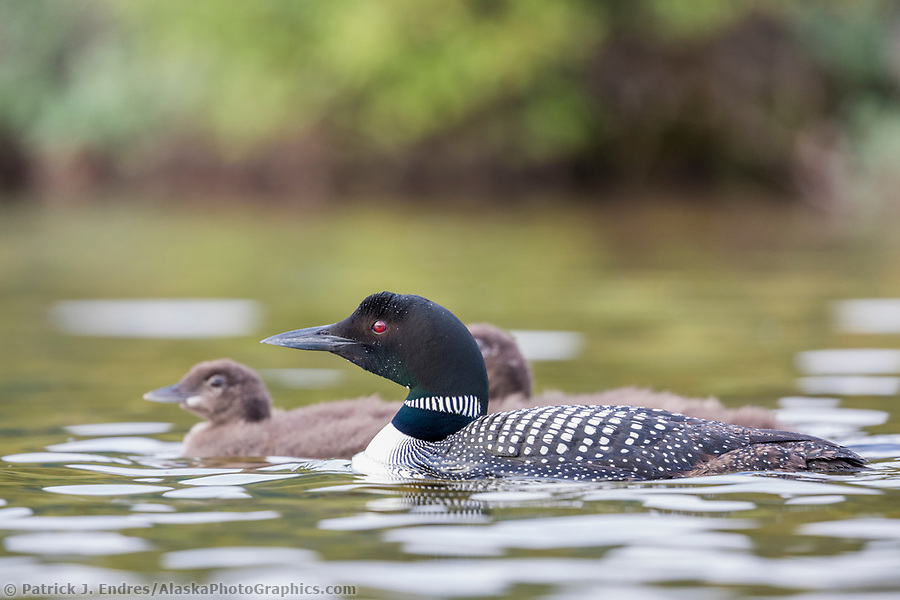
Common loon and chicks swim in Wonder Lake, Denali National Park, Alaska (Patrick J Endres / AlaskaPhotoGraphics.com)
Yellow-billed Loon photos (Gavia adamsii)
The summer breeding range for the Yellow-billed loon is along Alaska’s Arctic coast. They are the largest of the loon family. The bill is distinctly yellow-colored in mature birds. Adult loons fastidiously feed their young throughout the summer months into the autumn. The photo above was taken in September, with little time left before ponds freeze in the Arctic.
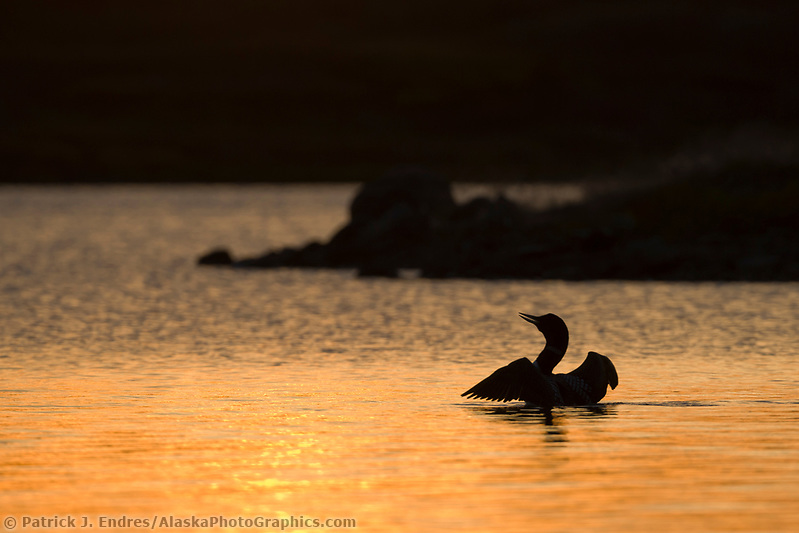
Yellow-billed loon swims in Toolik lake in Alaska’s Arctic. (Patrick J. Endres / AlaskaPhotoGraphics.com)
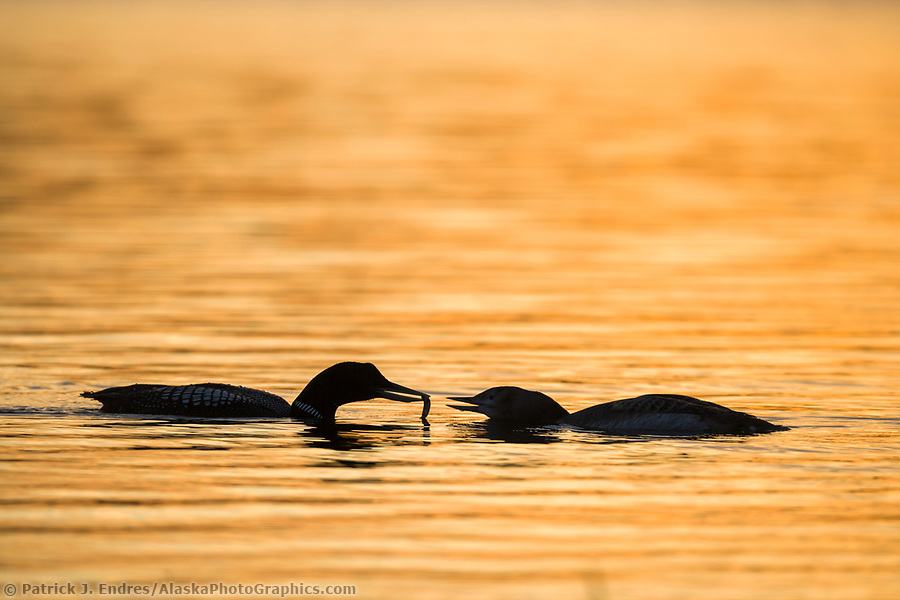
Yellow-billed loon swims in Toolik lake in Alaska’s Arctic. (Patrick J. Endres / AlaskaPhotoGraphics.com)
Pacific Loon photos (Gavia pacifica)
The Pacific Loon has a beautiful gray nape, similar to the Arctic loon, and can be hard to distinguish. The Pacific, however, has an extensive breeding range across Alaska (considered one of the most abundant loons in North America), whereas the Arctic loon breeds in a restricted region along the northwest coast.
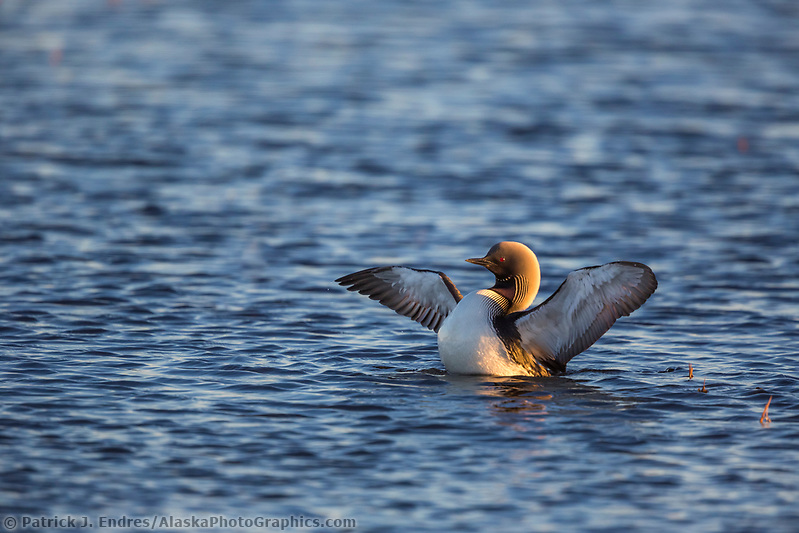
Arctic North Slope, Alaska. (Patrick J Endres / AlaskaPhotoGraphics.com)
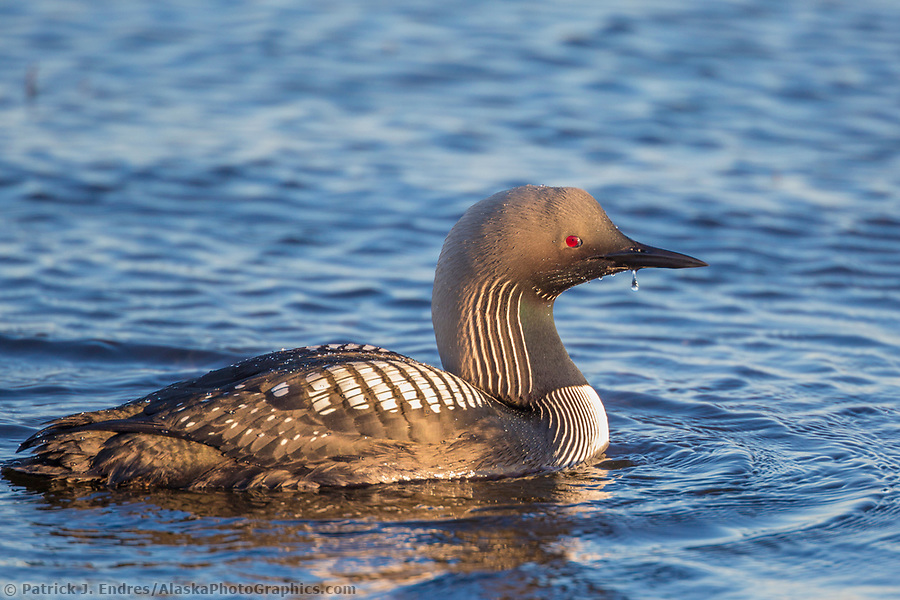
Pacific loon swims in a tundra pond on Alaska’s Arctic North Slope. (Patrick J. Endres / AlaskaPhotoGraphics.com)
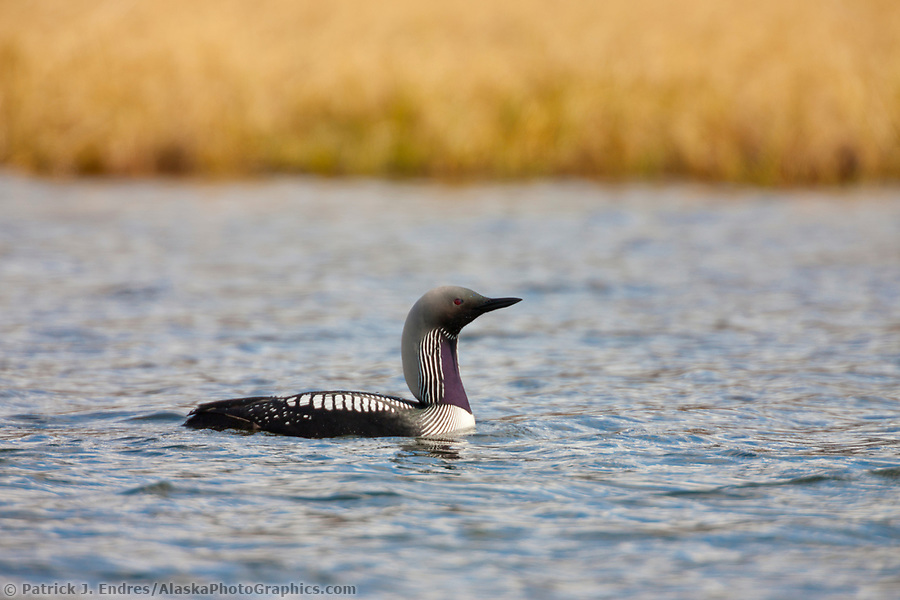
Pacific loon on tundra pond, National Petroleum Reserve, Alaska. (Patrick J. Endres / AlaskaPhotoGraphics.com)
